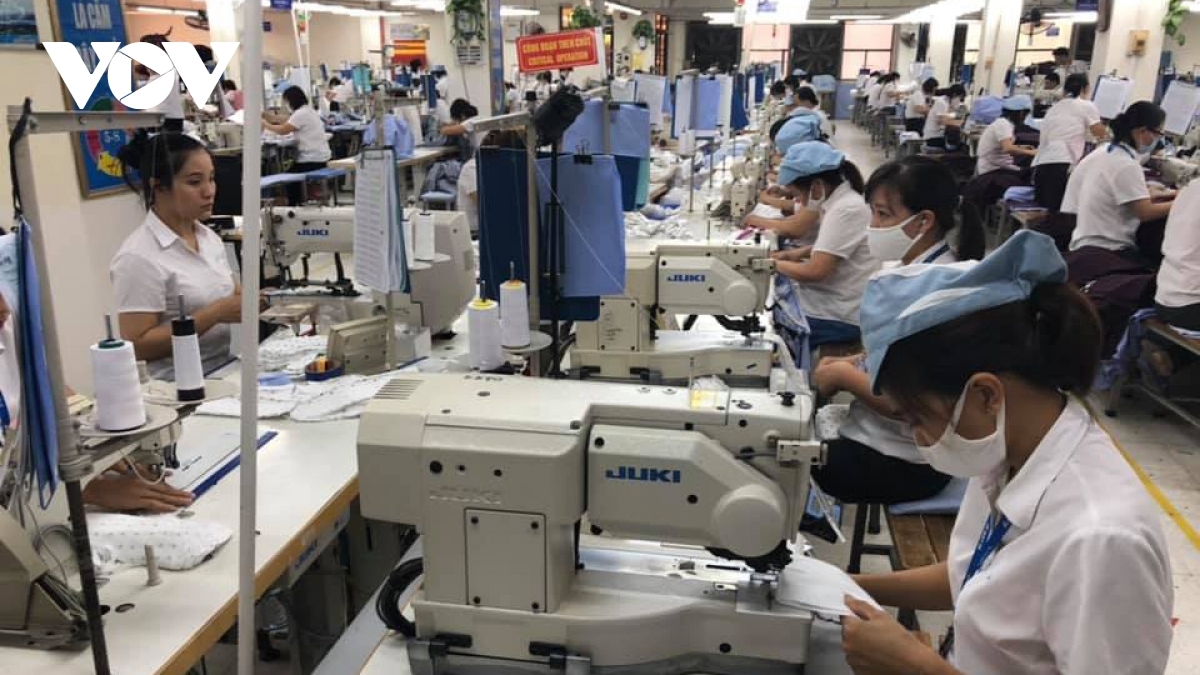
The report released by the European Chamber of Commerce in Vietnam (EuroCham) on July 4 shows that following a first-quarter rise, the BCI dropped 4.4 points in the second quarter to 68.8 points. Compounding factors such as the ongoing Russia-Ukraine conflict, commodity price spikes, and the ripple effect of China's zero-COVID policy have dampened expectations among Vietnam's European business community.
Despite the slight drop, the BCI remains 7.6 points higher than in the fourth quarter of 2021.
Confidence in Vietnam's potential growth also decreased among European business executives. 60% of the respondents predicted that the Vietnamese economy would stabilise or improve in the third quarter of 2022, compared with 69 % who held this belief entering the second quarter.
Additionally, participants were surveyed regarding foreign direct investment (FDI) in Vietnam. According to the findings, 45% of the respondents were significantly or moderately satisfied with the country’s efforts to attract and retain FDI, while 76% expected their companies to increase FDI in Vietnam before the end of the third quarter. About 55% of the respondents said Vietnam has improved its FDI attraction and retention capabilities since the first quarter.
European firm executives produced positive views about Vietnam's prospects for green growth as well. About 79% of the participants said their assessment of the country’s green development potential improved from the first quarter. Regarding the link between green growth and FDI, nearly 90% of the respondents believed Vietnam should increase green sector development to attract more foreign investment.
Notably, the survey also identified barriers to European investment in Vietnam and trade between the two sides. Accordingly, 35% of the respondents viewed reducing administrative barriers as the most effective way to increase FDI, while 24% pointed to infrastructure development.
Likewise, 45% of the participants said administrative procedures impede their ability to utilise the EU-Vietnam Free Trade Agreement (EVFTA), demonstrating the difficulty foreign companies face in navigating the country’s bureaucratic processes.
“Although the outlook for European business leaders has decreased since the last quarter, the factors affecting it are mostly beyond the Vietnamese government's control. A perfect storm of external factors is contributing to global economic instability. This problem is not unique to Vietnam.” EuroCham Chairman Alain Cany said
“With this BCI, Vietnam's path to improving its investment and business environment is clearly outlined. Green growth is the way of the future, not just because it will help build a prosperous foundation for Vietnam's economy and people, but also because it will support the country’s transformation into one of the world's strongest markets. Prime Minister Pham Minh Chinh's COP26 commitments and the government's National Green Growth Strategy show that the government is serious about making the changes necessary for a green transition”, the EuroCham representative stressed.
“Therefore, despite the global economic uncertainty, it is an incredibly exciting and promising time to do business in this country”, he noted.
Meanwhile, CEO of YouGov Thue Quist Thomasen said, “As foreign investors' confidence in the Vietnamese market remains stable in a turbulent time, more FDI is flowing into the country. Vietnam's potential for green growth is also inspiring European investors. As a result, these BCI results should be interpreted positively, as should the Vietnamese market in general."
The BCI is the leading indicator of the European business and investment community in Vietnam. To better understand the Vietnamese market, EuroCham invites its more than 1,200 members, representing virtually every sector of the Vietnamese economy, to provide quarterly updates on the country’s business environment and forecasts for their own businesses in the country. YouGov Vietnam conducts the BCI research and compiles the data./.
VOV
 Cambodia officially inaugurates Techo International Airport
Cambodia officially inaugurates Techo International Airport



